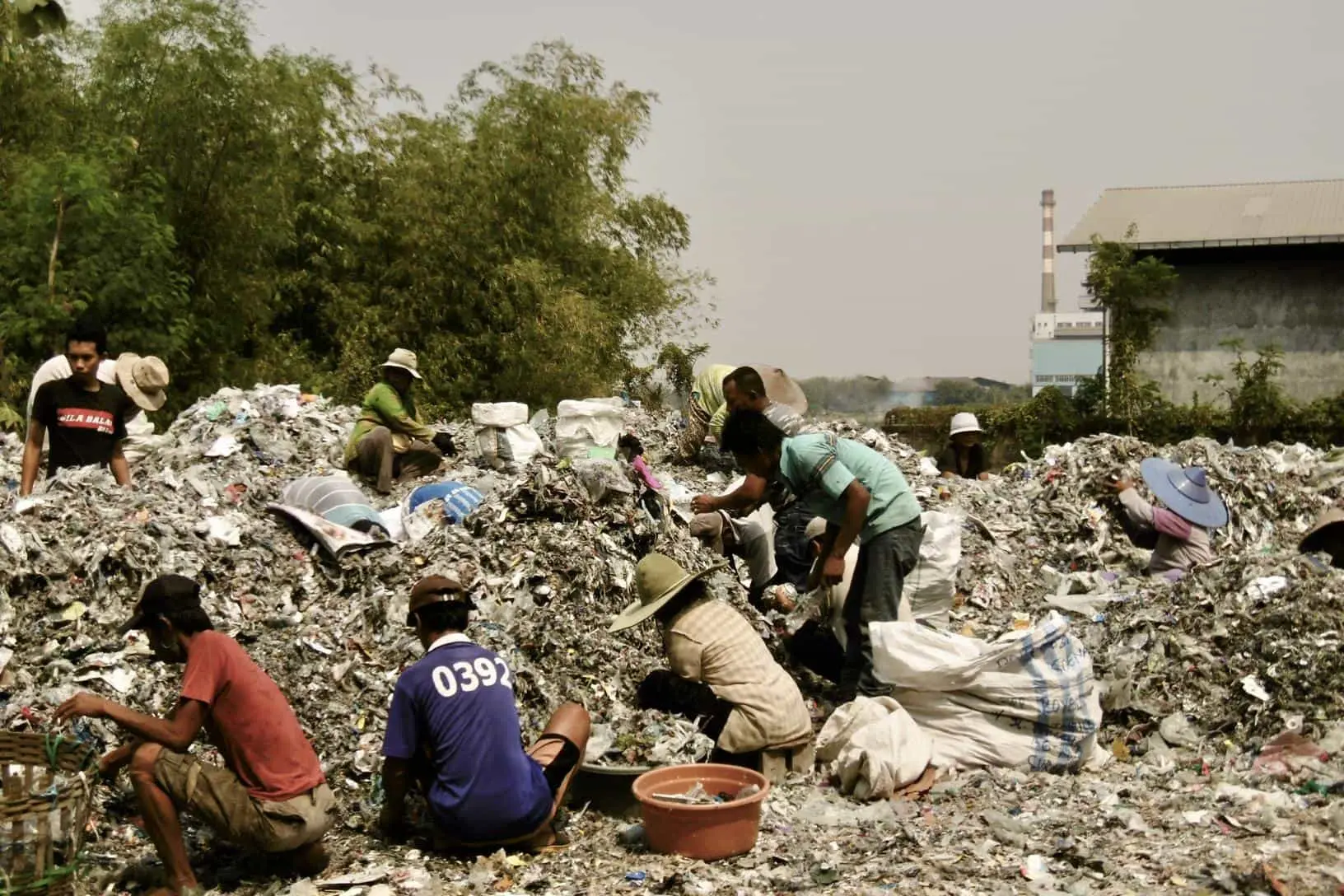The fact that it is now 2021 and Pakistan still does not have a formalized government-led recycling policy or initiative is absurd to type, read and research. Here’s a country with a population of more than 216.6 million people according to 2019 estimates; that simply do not care about recycling. Developed countries half our size has been involved in this environmentally healthy activity for years now, yet the greater South Asian region continues to be used as a dump yard for developed countries.
Pakistan is on its own tangent regarding this social problem, on a different level completely. The ‘recycling’ that does take place in our country is initiated in the informal sector, led by business-minded, profit-oriented middlemen and contractors, employing child scavengers to rummage through household and other waste in attempts to find salvageable material that is then sold to other countries to make money.
Yes, that absurd paragraph is all true. The mechanism relies on child labour at the grassroots level, which creates a myriad of risks on its own. It also exudes responsibility on the part of the government at municipal levels; to collect, treat and dispose of waste responsibly. Pakistan produces about 20 million tons of solid waste per year, according to the Environmental Protection Agency (EPA), and that number is growing by 2.4% per year. The majority of this trash is incinerated in pits. Located mostly in the center of towns, in the absence of proper waste disposal and waste treatment infrastructure.
Lack of Waste Management in Pakistan’s Environmental Policy
Why is this not a part of the wider environmental policy of Pakistan? Similarly, why is this not on the agenda in the National Assembly? Why is there no hue and cry about the lives of child waste-pickers or scavengers? I’m not saying these issues don’t come up, they do. However, the issues usually die back down. This is because no action takes place regarding any of it.
The recycling industry today supplies half of the raw materials globally, and this number will increase. The industry stands for ecologically sustainable resource conservation and, in most countries, it is a matter of common sense. In the private sector, businesses must be acknowledged and lauded to have taken it upon themselves to recycle and rid Pakistan of its waste. However, due to business expansion costs and limitation, these are not scalable projects.
Recycling – a Mismanaged and a Misunderstood Concept
Where are we going wrong? Firstly, there has to be a sustained and continued political will. A conviction to tackle this subject at a provincial and national level. Policymakers, academicians and journalists must advocate for it to be on the national agenda-setting. They should advocate for it to be on the radar of those in power. The best way to achieve an interest in recycling is by debating it publicly. If only our political talk shows, morning shows and news channels were focused on the right issue, maybe such problems could come to the surface and achieve the momentum they needed.
Secondly, problems related to endemic corruption, poor land-use planning and lack of awareness create further hurdles to solve this mounting (no pun intended!) problem.
Recycling is crucial to the community. The Pakistani population is increasing at an unprecedented rate. Therefore, we use more resources to meet the constant demand for products like, cars, air conditioners, houses, and other daily necessities. It seems like we only ever want resources from nature, we never plan on giving back or being responsible for what we do to things, once we no longer require them. This requires a shift in our mindset, awareness and understanding at all levels in order for a change in attitudes and approaches to recycling.
Taking a New Approach Towards Recycling
What happens if we alter our mindsets? The economy becomes more circular in nature instead of being linear. What does that mean? Currently, we want, we produce, we buy, we use and then we discard. Then we start the whole process again when we want something else. This is a linear process; it has a beginning and an end. In other words, every time we wish to buy something, we end up using new resources. It is unsustainable, unhealthy and rather an obsolete way of thinking, if we frame it globally.
The world has moved towards a circular model of sustainability, which is greener and environmentally friendly in its approach. Rather than discarding the product at the end, we extend its usage by using it again, but this time with the intent of creating something new from waste. Where one product\’s lifecycle ends, another begins. Hence, a circular way of funneling resources into a model that is never-ending. Resultantly, to meet production demands we use meaningless new resources.
How can we do this? A great starting point could be a threefold strategy, focusing on the government, the businesses and the individual. The government could start by (finally) acknowledging recycling as an important aspect of its environmental and sustainability programs and initiatives. Then it could formalize and legalize it by producing a policy of recycling at the provincial and national levels. Municipal and local governments could facilitate the following of this policy at household levels.
Next, a business could be incentivized to use recycled material as opposed to virgin material in their production cycles. This could ensure that the coming generation can use our scarce resources.
Every Effort Counts
Lastly, as individuals, we must take a leaf out of people in developing countries by making being responsible when we dispose of our waste. Following the hypothetical governmental policy outlined in the paragraphs above; the citizens must start using bags clearly marked for glass, plastic and metals, given to them by their local governments. After the collection of this organized waste, the governments waste management system ensures that the garbage reaches and is treated at waste disposal sites or recycling centers, made in every province. The local and provincial governments must ensure that waste ends up at these treatment facilities and not at landfill sites, as it currently does.
After this, you may think that I live in a utopian world where I think Pakistan is capable of doing this. If you feel that way, I urge you to watch one movie. Wall-E by Disney, in which the people of earth have to abandon their planet because they start drowning in their waste. Think that’s dystopian? Just walk around your own city and see how we leave heaps of waste lying around. Better yet, visit a nearby nala and stand there thinking about our future for a while. If that doesn’t scare you into taking action, then I don’t know what will.







